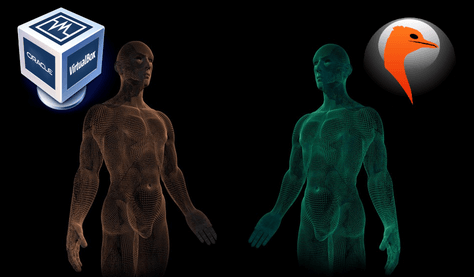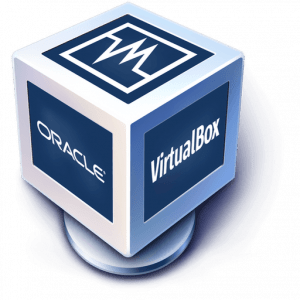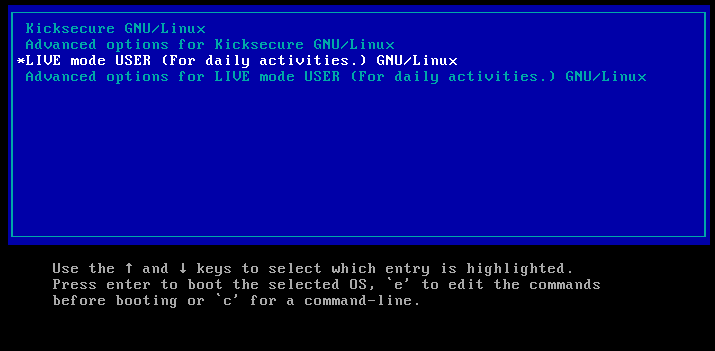Virtual Machines for Privacy 101
A Virtual Machine is a software emulated recreation of a smaller computer that runs in an isolated partition of a real physical computer’s hardware.

Update:
Check our new VPN which is faster than Virtual Machines: https://vpn.simplifiedprivacy.com
VMs
One technique for dealing with fingerprinting is to use Virtual Machines (VMs). Our new VPN is faster and leaner than these, but if you’re running untrusted software, you could consider a real VM.
A Virtual Machine is a software emulated recreation of a smaller computer that runs in an isolated partition of a real physical computer’s hardware. In other words, it’s a tiny isolated fake computer inside a real computer.
What is the Cloud?
Virtual Machines separates the computer’s functionality from the physical hardware that it’s hosted on. And this is the basis for cloud computing. The word ‘cloud’ really just means someone else is hosting a virtual machine. (On a side note, having nothing to do with fingerprinting, the cryptocurrency Ethereum and other smart contract platforms, are just decentralized virtual machines.)
Fingerprints
So a tiny Virtual Machine (VM) can be created on your computer with any operating system, and then this smaller synthetic mini computer can have any settings. So you could have one VM with a Central time zone clock that automatically loads on startup a VPN with a Dallas Texas IP address, 1280×960 screen dimensions, and Ubuntu Linux operating system. And only used for one purpose, let’s hypothetically say shopping.
Then you could have a different VM with a European clock, Switzerland IP address, 1600×900, and a Debian Linux operating system for a different purpose like medical research.
Then when you go to a website that is known to track you and sell the data, like WebMD, it won’t know anything about your shopping or real identity. It keeps each activity of your life compartmentalized and contained.
Virtual Machines take some time to setup and learn how to use. But once you’ve gotten the hang of it, using them can be quick and automatic, with different VMs labeled for the task they are being used for.
Benefits of VMs
Not only would you stop browser fingerprinting with this type of strategy, but also you could use different VPN companies for each of the virtual machines. This would help mitigate the risk of a VPN company actually logging your traffic, when they promised they wouldn’t. You wouldn’t be putting all your eggs in one basket, as they’d only see that one compartmentalized part of your life.
Virtual machines also really help with cookies, viruses, and spyware. With a VM, you are literally sandboxing the entire operating system and preventing the spyware (in whatever form it takes) from messing with your real computer.
Erase it after every use
With Virtual Machines running the distribution Kicksecure, you have the ability to erase everything after every use. This Kicksecure feature though does not really address browser fingerprinting, and is more focused on stopping cookies and malware from persisting to a different session. We discuss how to erase VMs after each session in our article on Kicksecure vs Whonix.
Kicksecure is a Debian based Distro which allows you to run it in “Live mode” which means wiping all the data from the session after it’s use
Tips on Setting Up Your VMs
When setting up the clocks and what region’s IP address you’ll use on your Virtual Machines, you want to pick locations closer to you for tasks that require a faster internet connection. This is because the VPN will be faster if the location you pick is physically closer to your modem.
We went over previously how a Wireguard VPN connection works in an article you can find here. Since Wireguard is faster than OpenVPN, consider using it for less sensitive tasks that you’ve chosen far away virtual machine locations for.
Another advantage of using Wireguard for virtual machines is that sometimes it may actually increase the speed to use multi-hop to a far away location. This depends on the VPN provider and if they offer multi-hop features. For example, if I am standing in Toronto Canada, and I want a website on a VM to think I’m in Miami Florida, then I could Wireguard multi-hop to New York first. Not only does this offer more privacy, but it’s actually faster internet speeds as long as the location is genuinely on the way.
Types of Virtual Machines
The two most popular open source VM options are Oracle’s Virtual Machine and QEMU Virt Manager KVM.
In our next article, we’re going to go over the differences between these two types of VM platforms and which ones you should be using in different scenarios.
Update:
Check our new VPN which is faster than Virtual Machines: https://vpn.simplifiedprivacy.com
How do you Setup up VMs?
Don’t miss out, subscribe for free to our new content by email, by Session messenger, via RSS feed, our Ethereum push notification channel, or on Nostr. Simplified Privacy offers custom guided KVM and Virtual Machine setups and technical support. In your personal consultation, we’ll guide you through your choice of audio, video, or live texting chat on how to setup or customize these VMs to meet your privacy needs.
Don’t make mistakes that slow down your internet or computer with a bad setup. Your consultation would be end-to-end encrypted on easy to use apps like Signal or Session, for anonymous cryptocurrency.
If you really want to learn and take your privacy to the next level, subscribe to our new content via: Podcast RSS, Session list, Nostr, Bastyon, Article RSS, or join the Signal Group
Related Posts

Why KVM Whonix over Oracle VirtualBox
KVM and VirualBox are two ways to use Whonix. Let's discuss why KVM is better.
[SP]
Feb 1, 2024

VM Burner Phones: Complete Guide
Did you know that you can create a virtual machine of a DeGoogled Android on your desktop Linux PC, to create infinite fast burner phones to isolate spyware apps?
[SP]
Dec 24, 2023

Types of Virtual Machines: What’s right for you?
The two most popular open source VM options are Oracle’s Virtual Machine and KVM Virt Manager (also going by QEMU)
[SP]
Jan 1, 0001

Whonix 101: The Best Way to Use Tor
[SP]
Jan 1, 0001